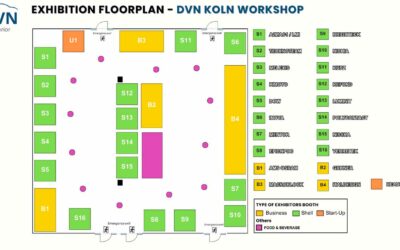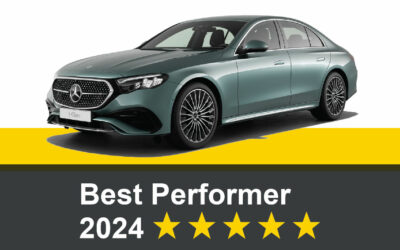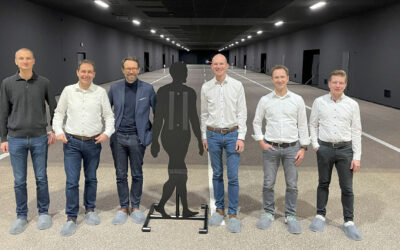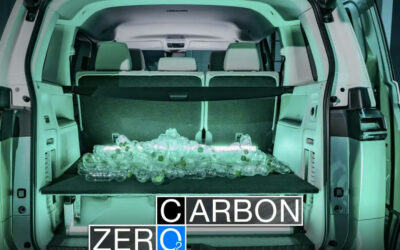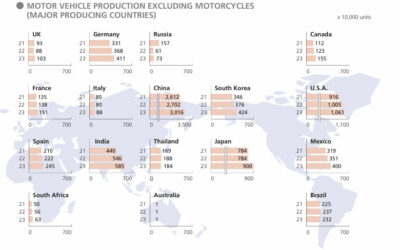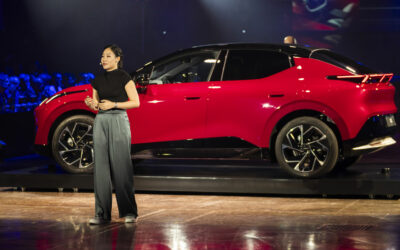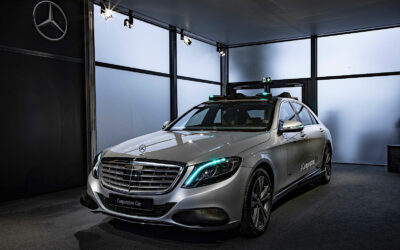It feels like apps are becoming a part of almost every aspect of our lives, doesn’t it? Social networks, maps, news, finances, fitness, home appliances…the list is endless.
The automotive sector has lagged behind the rest, but recent announcements and the exhibits at this year’s CES show cars are catching up. Let’s take a look:
Android
Android Auto is a mobile app itself, developed by Google to mirror an Android device’s interface on the car’s infotainment system. That allows the use of Android apps like Google Maps, Waze, and Spotify, giving access in a way that’s easier and safer than any alternative devised so far. It is a native OS that leverages the processing power of a vehicle’s infotainment system and onboard data package to offer a deeper, more connected experience in the car, whether en route or parked (like when recharging your EV).
Apple’s similar service is Apple CarPlay. Both systems allow you to connect your smartphone to your car’s infotainment system, providing access to navigation, communication, and entertainment apps.
Android operating systems are becoming more commonplace in new cars and commercial vehicles, particularly all the recently released EVs that are gradually becoming prevalent.
OEM trends
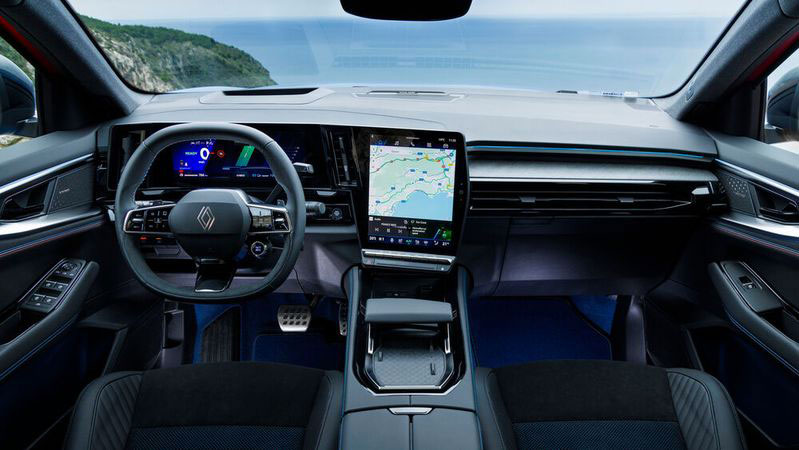
The list of automakers using a Google-infused infotainment offering (or planning to in the near future) includes Audi, Renault, Nissan, Polestar/Volvo, GM, Ford, Rivian, and more.
Other makers, such as BMW and Porsche, use Android software but without Google’s services and app store. There are alternative app platforms for car companies who do not wish to make full use of the US company’s services; more about those later in this article.
In Android Auto, apps can be downloaded from the Google Play Store to the tabletlike infotainment touchscreen, and users can sign into Google accounts and third-party apps like Netflix and Spotify and then control them with the vehicle’s voice assistant, as well as controlling connected items in the home or office with Google Home integration.
Popular apps
Automotive infotainment systems have become quite advanced, integrating various apps to enhance the driving experience. Some particularly popular types of apps are navigation (Google Maps, Waze…), music and podcasts (Spotify, YouTube Music…), communication (WhatsApp…), EV charging (PlugShare…), and entertainment (Netflix, Disney…).
The range of apps for cars is growing rapidly. Google is launching a program in February to make it easier for developers to make phone or tablet apps car-compatible. According to a report by Android Authority, the focus will be on streaming and entertainment services.
Now, let’s have a look at some recent topical announcements:
Appning: Forvia’s Rebranded App Store


Forvia has renamed their popular applications marketplace. Now it’s called Appning, a portmanteau of app and happening. It is a scalable, white-label applications marketplace to let users to take advantage of in-vehicle connectivity through the seamless integration of more than 200 applications.
Appning was originally founded in 2019, and currently is the market leader for automakers and app developers alike. It’s in 23 car brands worldwide—including BMW, Mini, Mercedes-Benz, VW, SAIC, LeapMotor, and Lotus. By fostering a collaborative environment for developers and manufacturers, Forvia strives toward their goal to achieve a 20-per-cent share of the segment by the end of 2025.
Appning is based on the Android Automotive OS, and is customizable and fully managed by the automaker, from its look and feel to the apps included. It’s a flexible solution with deployment to any cloud provider, ensuring privacy and compliance.
It contains a curated selection of global and local apps, including the likes of Spotify, Amazon music and TuneIn, Cityseeker, and Legible. OTA updates ensure the latest app versions and eliminate the need for hands-on system updates, guaranteeing optimal monetization for the entire ecosystem.
BMW, Mini to Integrate BBC Sounds
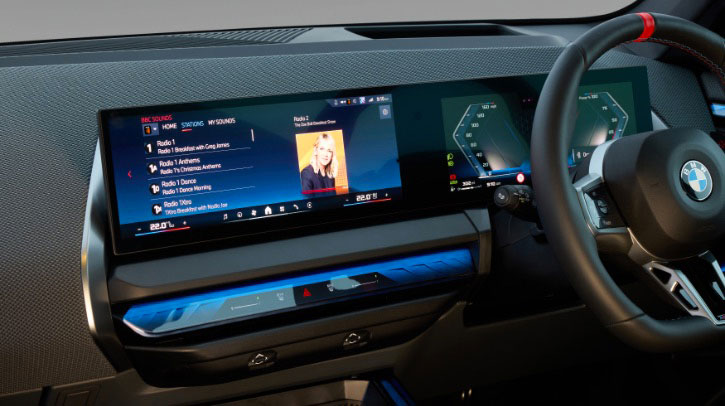
BMW and Mini drivers in the UK can now enjoy their favorite BBC podcasts, radio, and music; those are the first car brands to integrate the BBC Sounds app directly into their vehicles’ built-in app store.
Before, listeners needed a smartphone to access BBC Sounds via Android Auto or Apple CarPlay. Now, drivers of certain models with BMW or Mini Operating System 9 and a subscription to BMW Digital Premium or the Mini Connected package can stream content from the BBC Sounds app directly in the vehicle operating system.
Once installed in the car, drivers and passengers can enjoy a personalized experience by signing inwith their BBC account, synchronizing playback history across all their devices. For example, if a listener were to start a true crime podcast—the new series of Bad People, for example—on their smartphone, they can continue where they left off when they get in the car.
Once downloaded, the BBC Sounds app is fully integrated into the vehicle’s UI and can be easily accessed via the All Apps (BMW) or Media Selection (Mini). Additionally, data usage for streaming content is included in the connectivity provided by the BMW Digital Premium or Mini Connected subscription.
Over 50,000 BMW and Mini vehicles on the road in the UK support the new BBC Sounds in-car app, and this figure is expected to rise to around 150,000 by the end of 2025.
Sony RideVu Entertainment in Mercedes Cars
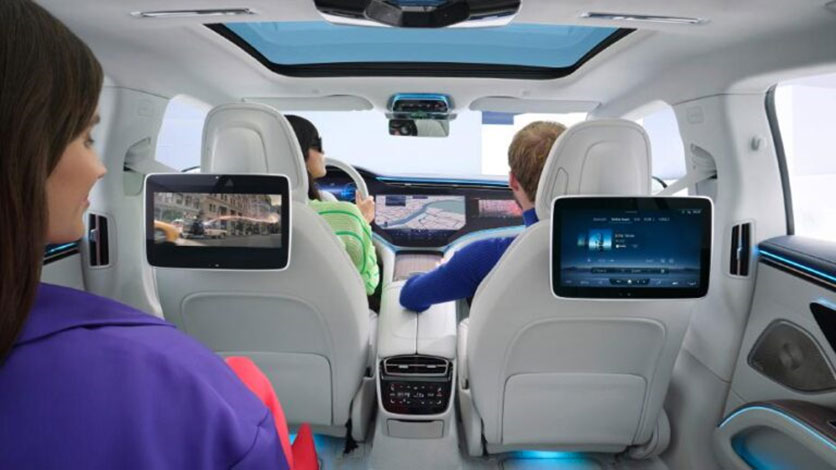
Mercedes-Benz is expanding their in-vehicle entertainment portfolio with the RideVu app from Sony Pictures Entertainment. Leveraging Mercedes’ MBUX infotainment system, the RideVu app offers streaming content on up to six screens.
Customers with applicable vehicles equipped with the MBUX Entertainment Package Plus and an active Mercedes-Benz Connect subscription can create a RideVu account via the in-car app. Once set up, customers can access a variety of content, updated regularly, as well as rent or buy from an even larger catalog of movies.
The RideVu video entertainment service provides access to movies and more. The streaming package includes a large selection of titles, with more new ones added constantly. This also includes short-form content with extras (behind-the-scenes insights, additional footage, interviews…).
With a RideVu account, Mercedes-Benz customers also have the option to rent (VOD) or purchase movies from the catalog of feature films. The app is available on all multimedia screens in the vehicle, with each able to stream content individually. The easy and intuitive interface makes it easy for users to choose and watch movies.
People can use their phones to access content inside and outside of the vehicle, and can cast to a TV or download to continue watching offline.
My Hyundai with Bluelink
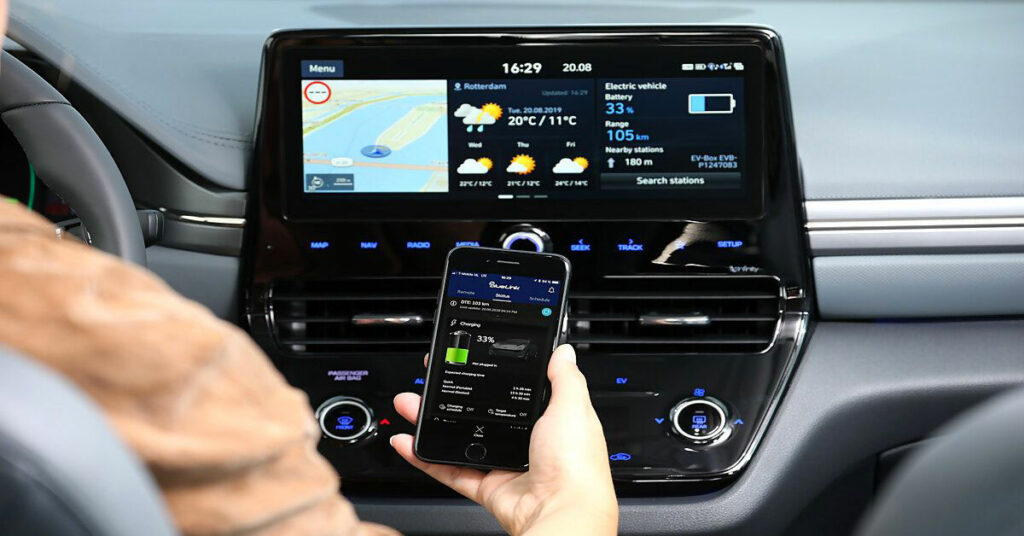
The MyHyundai with Bluelink app offers a range of features, including remote control (start or stop the engine; lock/unlock doors, adjust climate control)…vehicle health reports (trouble codes, maintenance alerts)…safety features (emergency assistance, collision notification, geofencing, curfews, speed alerts), and convenience features (find your car, schedule service appointments, access the vehicle’s service history).
There are three packages available: Connected Car, which includes comprehensive emergency assistance, Remote Package, which offers access to features such as remote start and remote climate control, and Guidance Package, which includes destination search. Each package costs about USD $100 per year.
Perspective: as in the air, so on the road
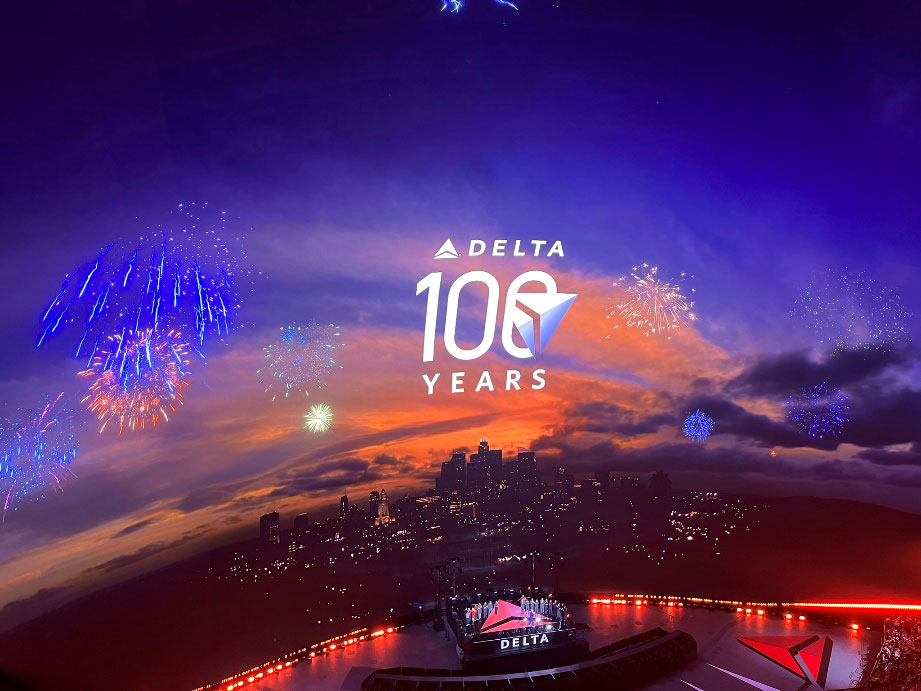
Delta Airlines has partnered with YouTube as part of the new Delta Sync experience. It aims to improve in-flight entertainment with music, podcasts, and a more personalized and accessible experience.
Delta’s effort to leverage technology like this to improve the travel experience seems to be the future. As in the air, so on the road; the in-car experience looks to be following the same route!
